How to turn disadvantaged kids into innovative entrepreneurs
As a 17-year-old from worker Ramla, the only decent summer job Rony Zarom could find was selling books door-to-door in Tel Aviv, about 12 miles from home.
“I took the bus all the way to Tel Aviv and they told me I would get a very small salary but if I did well I would get a percentage of the sales. It turned out that I was a really good salesman and made quite a lot of money for a young person in the summer,” recalls Zarom, a savvy entrepreneur.
The following summer, before he went into military service, Zarom started his own bookshop.
“I was really shocked at the level of trust I received from business people who provided me with inventory and guidance and everything I needed. When you have an experience like that, you feel like you can achieve anything in the world.”
Zarom later served in the Paratroopers, earned a master’s degree in computer science in New York, and returned to Israel to found the country’s first internet service provider.
After running several successful companies, he felt called to help young Israelis from disadvantaged backgrounds find their way into the business world, just as he had done.
Founded in 2001, Unistream now serves 3,500 high school students each year and has thousands of alumni from across the country from all walks of life – Jewish, Arab, religious, secular.
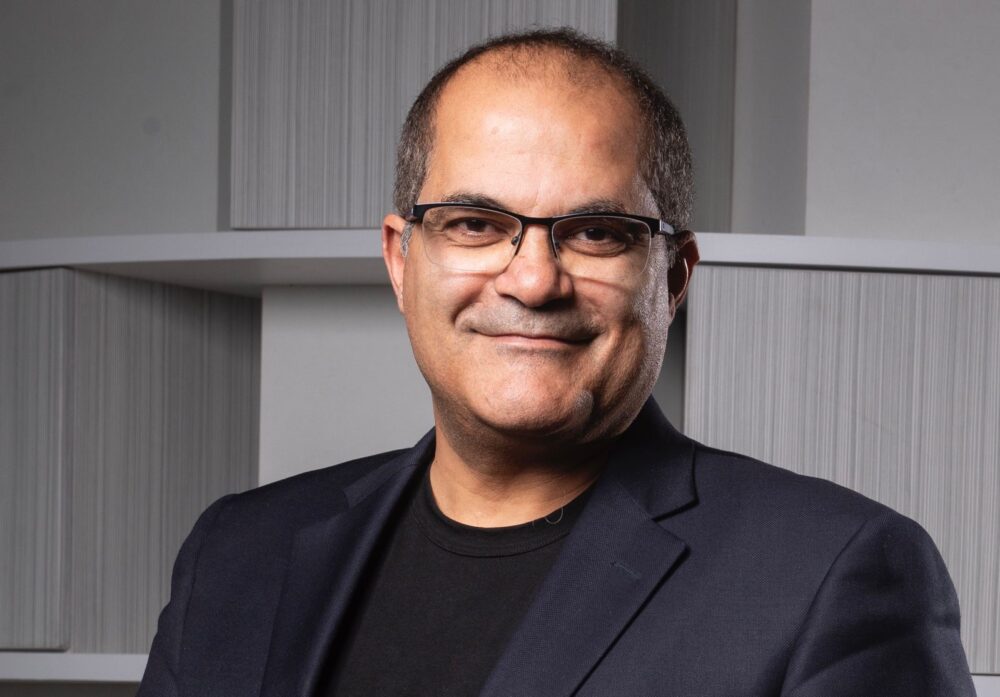
Rony Zarom, Founder of Unistream. Photo by Ilya Melknikov
“There are so many different currents in Israel, so many different colors, religions and cultures. But when children come to our organization, they are united and become one stream,” Zarom explains the name he chose for the organization.
“These are the people who stay behind. They don’t have mentors; they don’t have the courage and confidence to break the glass ceiling,” he tells ISRAEL21c.
“At Unistream, they will receive all the tools and skills from the world of entrepreneurship and innovation to enable them to dream big, boost their confidence, fulfill their professional aspirations and thrive in life.”
Young Entrepreneurs
Unistream has close ties to Israel’s business and educational communities, as well as government ministries.
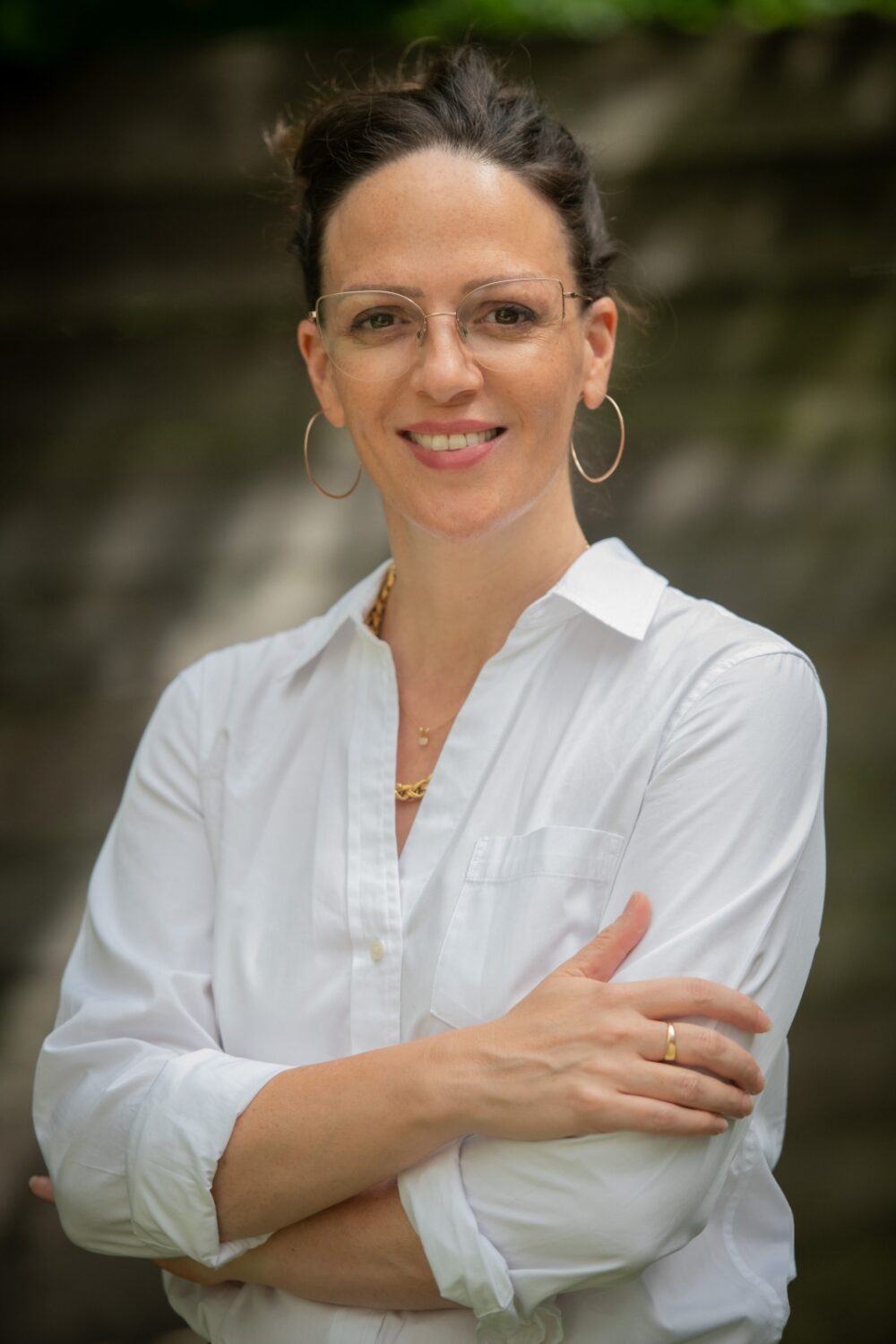
Ifat Bechor, CEO of Unistream. Photo by Shahar Azran
“We run 22 entrepreneurship centers in a three-year program for ninth, tenth and eleventh graders. Three of them are ‘shared society’, meaning they have Arab and Jewish participants working together to create startups,” Unistream CEO Ifat Bechor tells ISRAEL21c.
“And we have a year-long program called SUN (Startup Now) that has allowed us to bring entrepreneurial DNA to over 85 communities as an informal after-school program.”
In 2019, the Israel Innovation Agency and the Israel Ministry of Education awarded Unistream a five-year contract to run a young entrepreneurship program through SUN for seventh through twelfth grade students in northern and southern periphery communities.
Key figures from industry, academia, start-ups, incubators and entrepreneurial labs help SUN attendees turn their technical ideas into products with commercial value.
The highlight of the annual program is a Youth Entrepreneur of the Year competition, where teams present their projects in English.
Bechor notes that becoming fluent in English is difficult for many of these children, but it is a significant benefit for anyone who wants to start a business or work for multinationals like Microsoft, Meta or Google.
At the Youth Entrepreneur competition last July, in which 110 young startups took part, a team from Netivot won first prize for “EasyWake”, a smart mattress that wakes the sleeper with pleasant sounds and gentle vibrations – and via IoT with smart Connected to home appliances such as blinds, lights and heaters. A mattress manufacturer develops the concept.
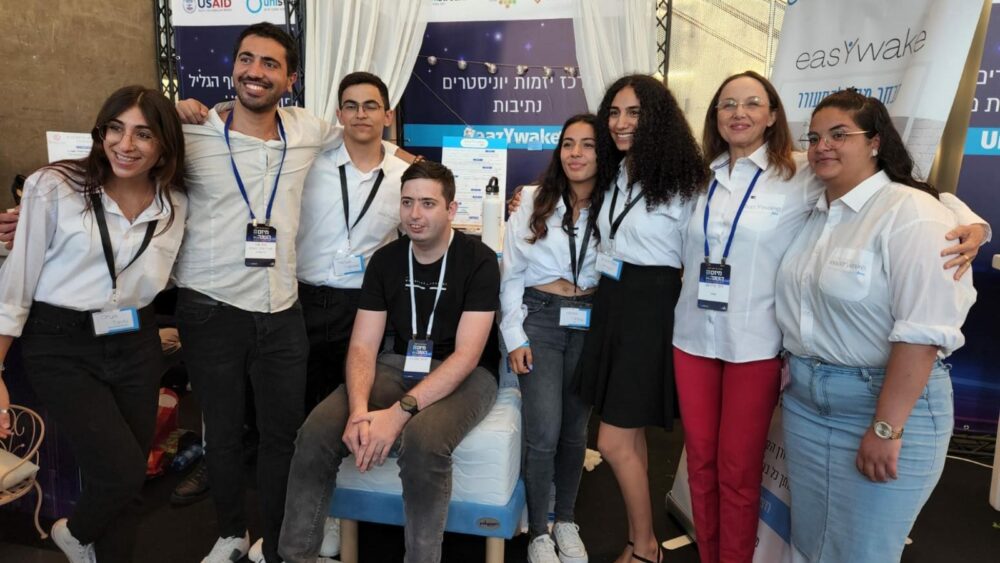
The winning group of Unistream’s 2022 Youth Entrepreneur of the Year competition. Photo courtesy of Unistream
A twinkle in the eye
According to Bechor, Unistream screens applicants recommended by high schools. Not everyone is accepted.
“If you’ve got that sparkle in your eyes and you’re ready to get involved, then we want you. Even if you are shy, present your idea – in English – to the best businessmen in Israel in a year. That’s the most amazing effect we can achieve,” says Bechor.
Bechor has been approached by business leaders in several other countries who are interested in replicating Unistream’s model to improve informal entrepreneurship education. In addition, Unistream teenagers engage in dialogue with their peers in other countries to improve their communication skills and broaden their horizons.
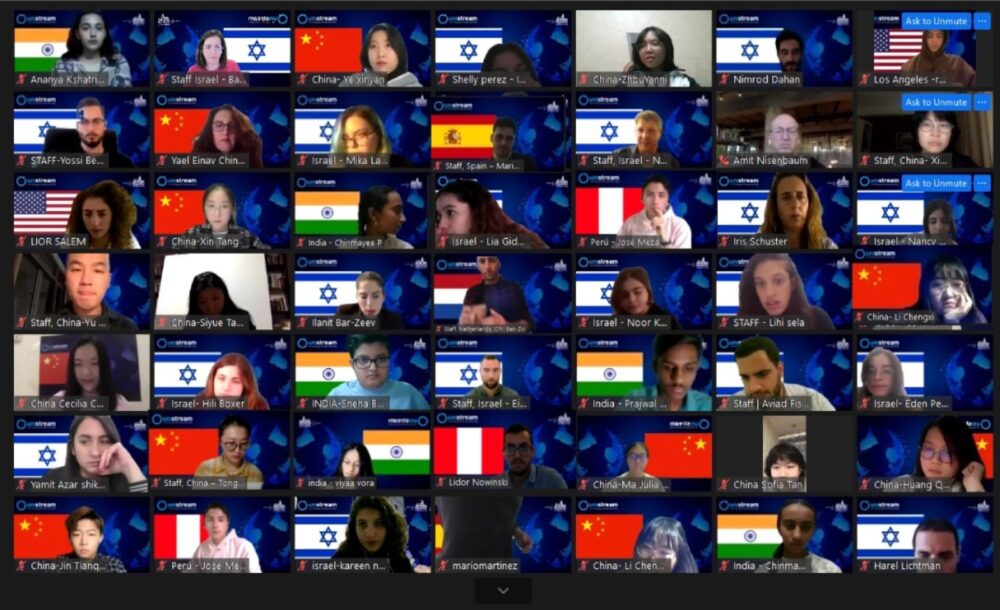
Unistream participants virtually meet with children from all over the world. Photo courtesy of Unistream
In addition to technical and soft skills, Unistream strives to give participants the ability to believe in themselves.
“We want them to understand that even the most successful entrepreneur in the world has often heard ‘no’ and it doesn’t matter where they were born. It’s about persistence, confidence, being comfortable in an uncomfortable zone.”
“I was saved by Unistream”
At last year’s Young Entrepreneurs competition, an alumnus came to Zarom and said, “I have to tell you something: before Unistream, I was on the verge of becoming someone completely different. And now I’m looking at myself and I’m like, ‘Wow, thank god Unistream saved me.’”
As a young teenager, he’d hung out with the wrong people. Now he is finishing his service in Unit 8200, the army’s elite technological corps that produced a large portion of Israel’s startup founders.
“He plans to study at Tel Aviv University and work as a computer programmer alongside his studies,” says Zarom.
“So you see the immense change you can bring about in a person. And there are so many examples like this.”
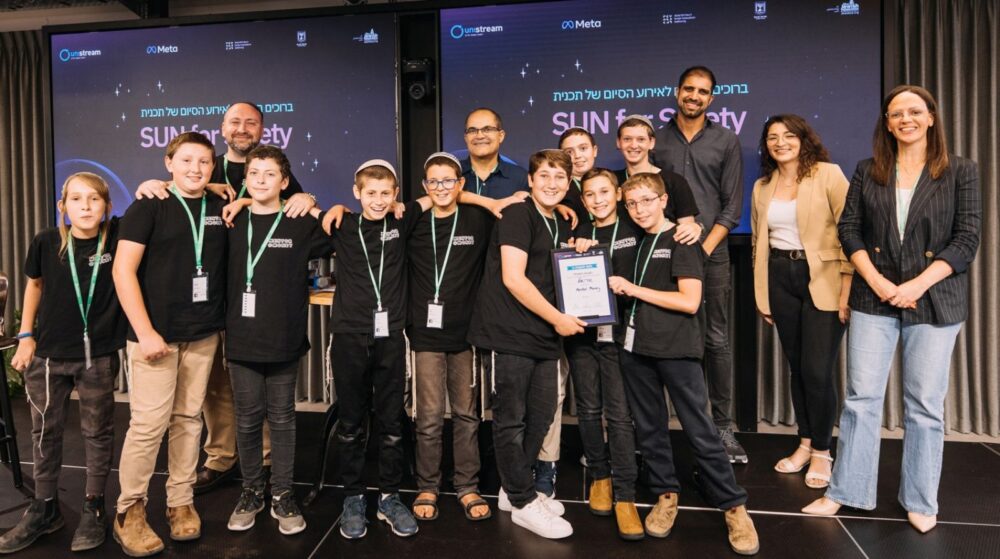
Teenagers from Unistream’s joint program with Meta (formerly Facebook) Israel. Photo by Neo Media
Bechor remembers a girl who sold sandwiches to earn enough money to put food on her family’s table. At Unistream, she was encouraged to take a more difficult path in math in her high school, which proved crucial to her success. “The math itself helped her, but it was more about not giving up and going the extra mile.”
Another girl used notes from her Unistream sessions as a guide to starting a business, making pizzas and selling them door-to-door with her single and unemployed mother. She later became Vice President of Marketing in one of Israel’s largest companies.
Amazing staff potential
Unistream participants are charged a small fee to show their commitment, but the fee is waived if they cannot afford it.
“The last thing we want them to think about is that the barrier is money,” says Bechor.
Unistream receives about 20% of its funding from various government agencies. The rest comes from the companies that provide volunteer mentors and sponsor their incubators, as well as from Jewish associations, foundations, and private donors.
“The corporate sector is aware that its investment in Unistream is symbiotic,” says Bechor.
“It’s not ‘we give and you take’. They understand that investing in our children really plants the seeds of their future employees and entrepreneurs in Israel, and that if you give kids as young as 15 and 16 just the right tools, there is amazing human resource potential in the periphery hands.”
For further information, click here